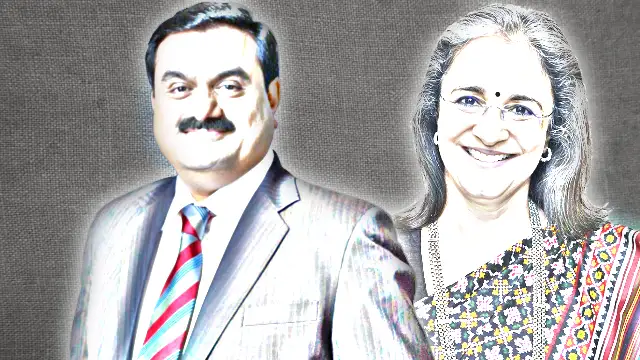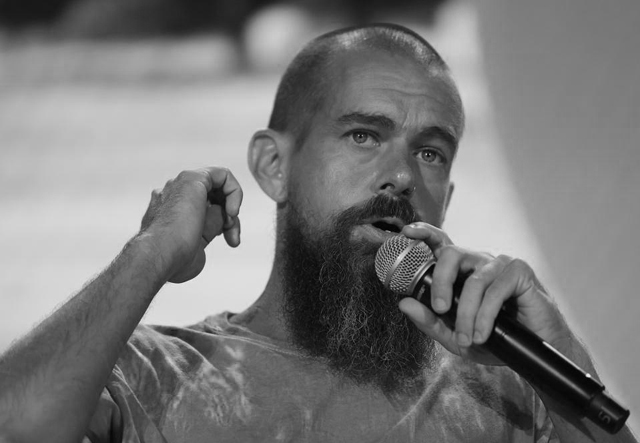Madhabi Puri Buch, the chairperson of India’s stock market regulator Securities and Exchange Board of India (SEBI) was commanding investors’ confidence until this weekend. But now she finds herself mired in a scandal that has not just rocked her career but also a massive political storm in India. A recent Hindenburg Research report on the SEBI chief accuses her of a conflict of interest, potentially compromising the integrity of the regulatory body.
The US-based short-seller known for its investigative work into corporate malfeasance, accuses Mrs Buch of holding stakes in offshore funds linked to the Adani Enterprises—a port-to-power conglomerate previously accused of orchestrating one of the largest financial frauds in Indian history.
Due to the alleged proximity between Adani Enterprises and Indian Prime Minister Narendra Modi, the recent Hindenburg Research report on the SEBI chief has stirred a political controversy that has provided enough ammunition to the Opposition to target the ruling far-right Bharatiya Janata Party’s (BJP) government that’s surviving on a thin majority.
What does the recent Hindenburg Research report on the SEBI chief allege?
According to the recent Hindenburg Research report on the SEBI chief, Mrs Buch, alongside her husband, Dhaval Buch, was allegedly involved in offshore funds used by Adani Enterprises to manipulate the stock market.
Specifically, the report cites whistle-blower documents that indicate the Buch couple held investments in two entities—Global Dynamic Opportunities Fund (GDOF) and IPE Plus Fund 1—accused of being deeply entwined in the Adani scandal.
On June 5th, 2015, the Buchs reportedly opened an account with IPE Plus Fund 1 in Singapore. The source of their investment was allegedly stated as “salary”, and their net worth was estimated at $10m.
Notably, in March 2017, just weeks before Mrs Buch’s appointment as a Whole Time Member of SEBI, Mr Buch wrote to the Mauritius-based fund administrator Trident Trust, requesting to become the sole operator of their accounts—a move that has triggered significant concerns about transparency and potential conflicts of interest.
Shadow of Adani Enterprises
The recent Hindenburg Research report on the SEBI chief accuses the Buchs of being inextricably linked to the broader scandal involving Adani Enterprises.
In January 2023, Hindenburg Research released a controversial report accusing the conglomerate of using a network of offshore shell companies, particularly in Mauritius, to engage in undisclosed related-party transactions and stock manipulation.
Central to these allegations was Vinod Adani, brother of Gautam Adani, the principal of the conglomerate perceived close to Mr Modi, who allegedly controlled these offshore entities.
One such entity, the GDOF, is based in Bermuda—a notorious tax haven—and serves as the parent fund for IPE Plus Fund 1.
The recent Hindenburg Research report on the SEBI chief suggests that the Adani conglomerate funnelled money through these funds to artificially inflate the stock prices of its publicly listed companies in the Indian stock market.
This complex web of financial transactions has cast a long shadow over SEBI’s ability to regulate fairly, especially given Mrs Buch’s alleged personal ties to these very entities.
Soon after the Hindenburg Research report on Adani was published in January 2023, the conglomerate lost billions as its stock prices nosedived and Indian stock markets bled for days.
A controversial wealth management firm
A listed Indian wealth management firm called 360 One [formerly India Infoline (IIFL)] has been also implicated in the recent Hindenburg Research report on the SEBI chief.
The report accuses IIFL of managing the offshore funds in question and facilitating the complex investment structures that allegedly enabled Adani Enterprises to manipulate the Indian stock market.
IIFL has a history of involvement in controversial financial activities, including ties to the Wirecard scandal, Germany’s largest-ever financial fraud case.
The IPE Plus Fund, managed by IIFL, had assets under management (AUM) of just $38.43m as of December 2017. Despite its relatively small size of AUM, the fund was significantly connected to the Adani Enterprises, the report alleged.
Anil Ahuja, the chief investment officer of the firm, also served as a director of Adani Enterprises and Adani Power for several years, further connecting the controversial conglomerate with the Buchs.
SEBI’s tepid response
In the wake of Hindenburg Research’s original report on the Adani stock market manipulation scam, the SEBI has been criticised for its lack of decisive action. It has been questioned by the Indian Supreme Court for its lackadaisical attitude in probing the charges against Adani.
Despite the detailed evidence of financial misconduct provided by the short-seller in its January 2023 report, the regulator’s response has been muted. Rather than chasing the accused, the SEBI has been targeting Hindenburg Research.
On June 27th, 2024, SEBI issued a ‘show cause’ notice to Hindenburg Research, challenging the adequacy of the disclosure around its short position in Adani stocks rather than addressing the substantial issues raised in the original report.
The notice accused Hindenburg Research of being “reckless” because it quoted a banned broker who alleged that SEBI was aware of the offshore schemes used by firms like Adani but chose to participate rather than regulate them.
This accusation of regulatory complicity, coupled with SEBI’s perceived inaction, has sparked further doubts regarding the agency’s effectiveness and autonomy.
The Opposition in India has been alleging that the SEBI’s tepid response is rooted in Mr Modi’s strong bond with Mr Adani. Now, the further revelations have strengthened their narrative.
Buch’s professional ties and conflict of interest
The recent Hindenburg Research report’s allegations regarding Mrs Buch’s professional ties during her tenure as a Whole Time Member of SEBI from April 2017 to March 2022 have further complicated her position.
According to Hindenburg Research, Mrs Buch held a 100% interest in an offshore Singaporean consulting firm, Agora Partners, until just two weeks before her appointment as SEBI chief in March 2022. At that time, she transferred her shares to her husband, raising red flags about potential conflicts of interest.
Agora Partners, which operates under Singaporean regulations that exempt it from disclosing financial statements, has become a focal point in the controversy.
The lack of transparency surrounding the firm’s financial dealings has led to questions about whether Mrs Buch’s external business interests compromised her ability to act impartially as SEBI chief against Adani Enterprises and others.
The REIT connection
Adding another layer of complexity is the role of Mr Buch, who was appointed as a senior advisor to Blackstone, a global private equity firm, in 2019. Blackstone has been one of the largest sponsors of Real Estate Investment Trusts (REITs) in India, a nascent asset class that has seen rapid growth in recent years.
During Mr Buch’s tenure, Blackstone allegedly sponsored two major REITs—Mindspace Business Parks in August 2020 and Nexus Select Trust in May 2023—both of which received SEBI approval under Mrs Buch’s leadership.
The timing of these approvals has raised concerns about potential conflicts of interest, especially given that SEBI introduced a series of regulatory changes during this period that significantly benefited the REIT market.
One of the most significant changes was the introduction of new board nomination rights for unit holders, allowing firms like Blackstone to nominate directors to REIT boards.
This regulatory shift has been highly advantageous for Blackstone, which cashed out its entire stake in Embassy REIT in December 2023, in India’s largest block trade of the year, valued at approximately Rs 71bn ($853m).
Political storm
The implications of these allegations extend far beyond SEBI and Adani Enterprises. They strike at the core of India’s regulatory framework, raising questions about the integrity of its financial markets and the role of its regulators.
The perception that SEBI’s leadership may be compromised could have far-reaching consequences, particularly at a time when India is positioning itself as a key player in the global economy.
The controversy has also taken on a political dimension, with India’s main opposition party, the Indian National Congress (INC), calling for a parliamentary probe into the allegations against Mrs Buch and the broader Adani scandal.
The party has previously alleged close ties between the Adani Enterprises and the ruling BJP, accusations that both sides have vehemently denied.
In a statement, an INC spokesperson called on the government to “eliminate all conflicts of interest in the SEBI investigation of Adani” and demanded a thorough investigation into the allegations.
The party’s calls for accountability have added pressure on the government and SEBI to address the growing scandal.
The reason behind a political storm arising out of this revelation by Hindenburg Research’s report on the SEBI chief is the lackadaisical attitude shown by the regulatory body towards investigating the allegations against the Adani conglomerate.
Coincidentally, the BJP, like before, has plunged to defend the accused and shoot the messenger—Hindenburg Research. Accusing the short-seller of being an outfit of American regime change actor George Soros, the BJP has called the report malicious and an attack on India’s economy.
However, the BJP, which otherwise resorts to anti-corruption rhetoric whenever it has to counter its opponents and have been accused of misusing the federal investigative agencies to harass the Opposition, didn’t support the demand for probing Mrs Buch’s role.
This has raised questions over the party’s seriousness in combatting corruption.
How did the accused react?
In a late-night press statement, the Buch couple denied the allegations, calling them “baseless” and stating that their finances are “an open book”.
They have pledged to provide all necessary financial documents to any investigating authority, asserting that all required disclosures have been made to SEBI over the years.
Meanwhile, Adani Enterprises has also denied any wrongdoing, describing the allegations as “red herrings thrown by a desperate entity”.
Mr Adani, the principal, had earlier resorted to “nationalism” to counter the allegations and has received support from the ruling BJP throughout the controversy.
Where are transparency and accountability?
As the controversy surrounding SEBI and Adani Enterprises continues to unfold following the recent Hindenburg Research report on the SEBI chief, there is an urgent need for transparency and accountability in India, the Opposition asserts.
The allegations against Mrs Buch, if proven true, suggest a serious conflict of interest that not only could compromise SEBI’s ability to regulate fairly but could also do long-term damage to the regulator’s credibility.
This, in turn, could have significant implications for investor confidence and the integrity of India’s financial markets.
With the BJP going on a war footing to defend a corruption accused, there are significant concerns over whether the Buchs would be thoroughly investigated, or the case would die an unnatural death due to the ruling entity’s desperation to save a conglomerate from any harm.







